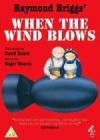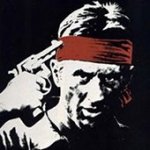जंग तो चंद रोज होती है , जिन्दगी बरसों तलक रोती है
बारूद से बोझल सारी फिज़ा, है मोत की बू फैलाती हवा
जख्मों पे है छाई लाचारी, गलियों में है फिरती बीमारी
ये मरते बच्चे हाथों में, ये माओं का रोना रातों में
मुर्दा बस्ती मुर्दा है नगर, चेहरे पत्थर हैं दिल पत्थर
मेरे दुश्मन, मेरे भाई, मेरे हमसाये
मुझे से तुझ से, हम दोनों से, सुन ये पत्थर कुछ कहते हैं
बर्बादी के सारे मंजर कुछ कहते हैं
मेरे दुश्मन, मेरे भाई, मेरे हमसाये
सन्नाटे की गहरी छाँव, ख़ामोशी से जलते गाँव
ये नदियों पर टूटे हुए पुल, धरती घायल और व्याकुल
ये खेत ग़मों से झुलसे हुए, ये खाली रस्ते सहमे हुए
ये मातम करता सारा समां, ये जलते घर ये काला धुआं
मेरे दुश्मन, मेरे भाई, मेरे हमसाये
मुझे से तुझ से, हम दोनों से ये जलते घर कुछ कहते हैं
बर्बादी के सारे मंजर कुछ कहते हैं
मेरे दुश्मन, मेरे भाई, मेरे हमसाए
मेरे दुश्मन, मेरे भाई, मेरे हमसाये
चेहरों के, दिलों के ये पत्थर, ये जलते घर
बर्बादी के सारे मंजर, सब तेरे नगर सब मेरे नगर, ये कहते हैं
इस सरहद पर फुन्कारेगा कब तक नफरत का ये अजगर
हम अपने अपने खेतो में, गेहूँ की जगह चावल की जगह
ये बन्दूके क्यों बोते हैं
जब दोनों ही की गलियों में, कुछ भूखे बच्चे रोते हैं
आ खाएं कसम अब जंग नहीं होने पाए
ओर उस दिन का रस्ता देंखें,
जब खिल उठे तेरा भी चमन, जब खिल उठे मेरा भी चमन
तेरा भी वतन मेरा भी वतन, मेरा भी वतन तेरा भी वतन
मेरे दोस्त, मेरे भाई, मेरे हमसाये
बारूद से बोझल सारी फिज़ा, है मोत की बू फैलाती हवा
जख्मों पे है छाई लाचारी, गलियों में है फिरती बीमारी
ये मरते बच्चे हाथों में, ये माओं का रोना रातों में
मुर्दा बस्ती मुर्दा है नगर, चेहरे पत्थर हैं दिल पत्थर
मेरे दुश्मन, मेरे भाई, मेरे हमसाये
मुझे से तुझ से, हम दोनों से, सुन ये पत्थर कुछ कहते हैं
बर्बादी के सारे मंजर कुछ कहते हैं
मेरे दुश्मन, मेरे भाई, मेरे हमसाये
सन्नाटे की गहरी छाँव, ख़ामोशी से जलते गाँव
ये नदियों पर टूटे हुए पुल, धरती घायल और व्याकुल
ये खेत ग़मों से झुलसे हुए, ये खाली रस्ते सहमे हुए
ये मातम करता सारा समां, ये जलते घर ये काला धुआं
मेरे दुश्मन, मेरे भाई, मेरे हमसाये
मुझे से तुझ से, हम दोनों से ये जलते घर कुछ कहते हैं
बर्बादी के सारे मंजर कुछ कहते हैं
मेरे दुश्मन, मेरे भाई, मेरे हमसाए
मेरे दुश्मन, मेरे भाई, मेरे हमसाये
चेहरों के, दिलों के ये पत्थर, ये जलते घर
बर्बादी के सारे मंजर, सब तेरे नगर सब मेरे नगर, ये कहते हैं
इस सरहद पर फुन्कारेगा कब तक नफरत का ये अजगर
हम अपने अपने खेतो में, गेहूँ की जगह चावल की जगह
ये बन्दूके क्यों बोते हैं
जब दोनों ही की गलियों में, कुछ भूखे बच्चे रोते हैं
आ खाएं कसम अब जंग नहीं होने पाए
ओर उस दिन का रस्ता देंखें,
जब खिल उठे तेरा भी चमन, जब खिल उठे मेरा भी चमन
तेरा भी वतन मेरा भी वतन, मेरा भी वतन तेरा भी वतन
मेरे दोस्त, मेरे भाई, मेरे हमसाये
inviata da Ritesh Singh - 27/1/2013 - 12:07
Lingua: Hindi
La trascrizione in caratteri latini effettuata con l'ausilio di Google Translator
Google Translator helped Romanization
Google Translator helped Romanization
Anche per la lingua hindi, Google Translator offre lo strumento della trascrizione; e, ripetiamo, se per la traduzione ancora siamo poco più che al livello di dare una vaga idea, le trascrizioni sono invece molto esatte e ben fatte (e basate su princìpi scientifici). Assolutamente "well done".[RV]
The transcription tool is offered by Google Translator also for the Hindi language. We want to repeat here that, if the translation tool still gives no more than a rough and vague idea of what is said, the transcription, based on scientific principles, is exact and really well done. [RV]
The transcription tool is offered by Google Translator also for the Hindi language. We want to repeat here that, if the translation tool still gives no more than a rough and vague idea of what is said, the transcription, based on scientific principles, is exact and really well done. [RV]
MĒRĒ DUŚMANA, MĒRĒ BHĀ'Ī
Jaṅga tō canda rōja hōtī hai, jindagī barasōṁ talaka rōtī hai
Bārūda sē bōjhala sārī phizā, hai mōta kī bū phailātī havā
Jakhmōṁ pē hai chā'ī lācārī, galiyōṁ mēṁ hai phiratī bīmārī
Yē maratē baccē hāthōṁ mēṁ, yē mā'ōṁ kā rōnā rātōṁ mēṁ
Murdā bastī murdā hai nagara, cēharē pat'thara haiṁ dila pat'thara
Mērē duśmana, mērē bhā'ī, mērē hamasāyē
Mujhē sē tujha sē, hama dōnōṁ sē, suna yē pat'thara kucha kahatē haiṁ
Barbādī kē sārē man̄jara kucha kahatē haiṁ
Mērē duśmana, mērē bhā'ī, mērē hamasāyē
Sannāṭē kī gaharī chām̐va, ḵẖāmōśī sē jalatē gām̐va
Yē nadiyōṁ para ṭūṭē hu'ē pula, dharatī ghāyala aura vyākula
Yē khēta ġamōṁ sē jhulasē hu'ē, yē khālī rastē sahamē hu'ē
Yē mātama karatā sārā samāṁ, yē jalatē ghara yē kālā dhu'āṁ
Mērē duśmana, mērē bhā'ī, mērē hamasāyē
Mujhē sē tujha sē, hama dōnōṁ sē yē jalatē ghara kucha kahatē haiṁ
Barbādī kē sārē man̄jara kucha kahatē haiṁ
Mērē duśmana, mērē bhā'ī, mērē hamasā'ē
Mērē duśmana, mērē bhā'ī, mērē hamasāyē
Cēharōṁ kē, dilōṁ kē yē pat'thara, yē jalatē ghara
Barbādī kē sārē man̄jara, saba tērē nagara saba mērē nagara, yē kahatē haiṁ
Isa sarahada para phunkārēgā kaba taka napharata kā yē ajagara
Hama apanē apanē khētō mēṁ, gēhūm̐ kī jagaha cāvala kī jagaha
Yē bandūkē kyōṁ bōtē haiṁ
Jaba dōnōṁ hī kī galiyōṁ mēṁ, kucha bhūkhē baccē rōtē haiṁ
Ā khā'ēṁ kasama aba jaṅga nahīṁ hōnē pā'ē
Ōra usa dina kā rastā dēṅkhēṁ,
Jaba khila uṭhē tērā bhī camana, jaba khila uṭhē mērā bhī camana
Tērā bhī vatana mērā bhī vatana, mērā bhī vatana tērā bhī vatana
Mērē dōsta, mērē bhā'ī, mērē hamasāyē
Jaṅga tō canda rōja hōtī hai, jindagī barasōṁ talaka rōtī hai
Bārūda sē bōjhala sārī phizā, hai mōta kī bū phailātī havā
Jakhmōṁ pē hai chā'ī lācārī, galiyōṁ mēṁ hai phiratī bīmārī
Yē maratē baccē hāthōṁ mēṁ, yē mā'ōṁ kā rōnā rātōṁ mēṁ
Murdā bastī murdā hai nagara, cēharē pat'thara haiṁ dila pat'thara
Mērē duśmana, mērē bhā'ī, mērē hamasāyē
Mujhē sē tujha sē, hama dōnōṁ sē, suna yē pat'thara kucha kahatē haiṁ
Barbādī kē sārē man̄jara kucha kahatē haiṁ
Mērē duśmana, mērē bhā'ī, mērē hamasāyē
Sannāṭē kī gaharī chām̐va, ḵẖāmōśī sē jalatē gām̐va
Yē nadiyōṁ para ṭūṭē hu'ē pula, dharatī ghāyala aura vyākula
Yē khēta ġamōṁ sē jhulasē hu'ē, yē khālī rastē sahamē hu'ē
Yē mātama karatā sārā samāṁ, yē jalatē ghara yē kālā dhu'āṁ
Mērē duśmana, mērē bhā'ī, mērē hamasāyē
Mujhē sē tujha sē, hama dōnōṁ sē yē jalatē ghara kucha kahatē haiṁ
Barbādī kē sārē man̄jara kucha kahatē haiṁ
Mērē duśmana, mērē bhā'ī, mērē hamasā'ē
Mērē duśmana, mērē bhā'ī, mērē hamasāyē
Cēharōṁ kē, dilōṁ kē yē pat'thara, yē jalatē ghara
Barbādī kē sārē man̄jara, saba tērē nagara saba mērē nagara, yē kahatē haiṁ
Isa sarahada para phunkārēgā kaba taka napharata kā yē ajagara
Hama apanē apanē khētō mēṁ, gēhūm̐ kī jagaha cāvala kī jagaha
Yē bandūkē kyōṁ bōtē haiṁ
Jaba dōnōṁ hī kī galiyōṁ mēṁ, kucha bhūkhē baccē rōtē haiṁ
Ā khā'ēṁ kasama aba jaṅga nahīṁ hōnē pā'ē
Ōra usa dina kā rastā dēṅkhēṁ,
Jaba khila uṭhē tērā bhī camana, jaba khila uṭhē mērā bhī camana
Tērā bhī vatana mērā bhī vatana, mērā bhī vatana tērā bhī vatana
Mērē dōsta, mērē bhā'ī, mērē hamasāyē
inviata da CCG/AWS Staff - 25/2/2014 - 13:11
Lingua: Hindi
La trascrizione del testo data da Ritesh Singh
Lyrics transcription as contributed by Ritesh Singh
Lyrics transcription as contributed by Ritesh Singh
La trascrizione data dal nostro contributore indiano (che ringraziamo di cuore) è quella generalmente in uso per la lingua hindi: è basata, cioè, principalmente sull'inglese (per cui, ad esempio, “pradīpa” diventa “Pradeep”). È una cosa anche comprensibile, se si pensa alla funzione che la lingua inglese ha tuttora in India; inoltre, per così dire, ha il vantaggio di seguire maggiormente l'effettiva pronuncia della lingua hindi (nella trascrizione scientifica fornita da Google Translator, la “a” finale breve viene ad esempio sempre indicata, quando invece non si pronuncia mai). La trascrizione anglicizzante ha una lunga tradizione. La versione del testo fornita da Ritesh Singh è quella che comunemente si trova in Rete; rispetto alle versioni del testo disponibili nella scrittura Devanāgarī, presenta una diversa disposizione delle strofe. La manteniamo così com'è. [CCG/AWS Staff]
The transcription given by our Indian contributor (whom we thank heartedly) is that generally used for the Hindi language and is mostly based on English (i.e., that's why “pradīpa” becomes “Pradeep”). This can be easily understood if you think to the function English has in India still today; in addition to this, so to say, it follows more closely the real pronunciation of Hindi (in Google Translator's scientific transcription, for instance, the final short “a” is always shown, but it is never pronounced). The English-based transcription has a long tradition. The version of the lyrics given by Ritesh Singh is that [[generally found on the Web and shows a different verse layout in comparison with the lyrics versions available in the Devanāgarī script. [AWS/CCG Staff]
The transcription given by our Indian contributor (whom we thank heartedly) is that generally used for the Hindi language and is mostly based on English (i.e., that's why “pradīpa” becomes “Pradeep”). This can be easily understood if you think to the function English has in India still today; in addition to this, so to say, it follows more closely the real pronunciation of Hindi (in Google Translator's scientific transcription, for instance, the final short “a” is always shown, but it is never pronounced). The English-based transcription has a long tradition. The version of the lyrics given by Ritesh Singh is that [[generally found on the Web and shows a different verse layout in comparison with the lyrics versions available in the Devanāgarī script. [AWS/CCG Staff]
MERE DUSHMAN MERE BHAI
Sannate ki gehri chhanv
Khaamoshi se jalte gaanv
Ye nadiyon par toote huey pul
Dharti ghaayal aur vyaakul
Ye khet gamon se jhulse huey
Ye khaali raste sehme huey
Ye maatam karta saara samaa
Ye jalte ghar ye kaala dhuaan
Ye jalte ghar ye kaala dhuaan
Hoho...
Hmmm...
Mere dushman mere bhai mere humsaaye
Mere dushman mere bhai mere humsaaye
Mujhse tujhse hum donon se ye jalte ghar kuchh kehte hain
Barbaadi ke saari manzar kuchh kehte hain
Hay...
Mere dushman mere bhai mere humsaaye
Hoho...
Hmmm...
Baarood se bojhal saari fiza
Hai maut ki dhoop hai laati hava
Zakhmon pe hai chhaayi laachaari
Dariyon mein hai khilti beemaari
Ye marte bachche haathon mein
Ye maaon ka rone raaton mein
Murda basti murda hai nagar
Chehre patthar hain dil patthar
Chehre patthar hain dil patthar
Hoho...
Hmm...
Mere dushman mere bhai mere humsaaye
Mere dushman mere bhai mere humsaaye
Mujhse tujhse hum donon sun ye patthar ghar kuchh kehte hain
Barbaadi ke saari manzar kuchh kehte hain
Hay...
Mere dushman mere bhai mere humsaaye
Hoho...
Hmmm...
Mere dushman mere bhai mere humsaaye
Chehron ke dilon ke ye patthar ye jalte ghar
Barbaadi ke saare manzar sab mere nagar sab tere nagar
Ye kehte hain
Is sarhad par pulkaarega kab tak nafrat ka ye ajgar
Kab tak nafrat ka ye agrak
Is sarhad par pulkaarega kab tak nafrat ka ye ajgar
Hum apne apne kheton mein gehoon ki jagah chaawal ki jagah
Ye bandookein kyon bote hain
Jab donon hi ki galiyon mein kuchh bhookke bachche rote hain
Kuchhbhookhe bachche rote hain
Aa khaayein kasam
Ab jung nahin hone paaye
Aa khaayein kasam
Ab jung nahin hone paaye
Aur us din ka rasta dekhein
Jab khil uththay tera bhi chaman
Jab khil uththay mera bhi chaman
Tera bhi watan mera bhi watan
Mera bhi watan tera bhi watan
Tera bhi watan mere bhi watan
Hoho...
Mere dost mere bhai mere humsaaye
Mere dost mere bhai mere humsaaye
Hoho...
Hmmm...
Aaa...
Sannate ki gehri chhanv
Khaamoshi se jalte gaanv
Ye nadiyon par toote huey pul
Dharti ghaayal aur vyaakul
Ye khet gamon se jhulse huey
Ye khaali raste sehme huey
Ye maatam karta saara samaa
Ye jalte ghar ye kaala dhuaan
Ye jalte ghar ye kaala dhuaan
Hoho...
Hmmm...
Mere dushman mere bhai mere humsaaye
Mere dushman mere bhai mere humsaaye
Mujhse tujhse hum donon se ye jalte ghar kuchh kehte hain
Barbaadi ke saari manzar kuchh kehte hain
Hay...
Mere dushman mere bhai mere humsaaye
Hoho...
Hmmm...
Baarood se bojhal saari fiza
Hai maut ki dhoop hai laati hava
Zakhmon pe hai chhaayi laachaari
Dariyon mein hai khilti beemaari
Ye marte bachche haathon mein
Ye maaon ka rone raaton mein
Murda basti murda hai nagar
Chehre patthar hain dil patthar
Chehre patthar hain dil patthar
Hoho...
Hmm...
Mere dushman mere bhai mere humsaaye
Mere dushman mere bhai mere humsaaye
Mujhse tujhse hum donon sun ye patthar ghar kuchh kehte hain
Barbaadi ke saari manzar kuchh kehte hain
Hay...
Mere dushman mere bhai mere humsaaye
Hoho...
Hmmm...
Mere dushman mere bhai mere humsaaye
Chehron ke dilon ke ye patthar ye jalte ghar
Barbaadi ke saare manzar sab mere nagar sab tere nagar
Ye kehte hain
Is sarhad par pulkaarega kab tak nafrat ka ye ajgar
Kab tak nafrat ka ye agrak
Is sarhad par pulkaarega kab tak nafrat ka ye ajgar
Hum apne apne kheton mein gehoon ki jagah chaawal ki jagah
Ye bandookein kyon bote hain
Jab donon hi ki galiyon mein kuchh bhookke bachche rote hain
Kuchhbhookhe bachche rote hain
Aa khaayein kasam
Ab jung nahin hone paaye
Aa khaayein kasam
Ab jung nahin hone paaye
Aur us din ka rasta dekhein
Jab khil uththay tera bhi chaman
Jab khil uththay mera bhi chaman
Tera bhi watan mera bhi watan
Mera bhi watan tera bhi watan
Tera bhi watan mere bhi watan
Hoho...
Mere dost mere bhai mere humsaaye
Mere dost mere bhai mere humsaaye
Hoho...
Hmmm...
Aaa...
inviata da CCG/AWS Staff - 25/2/2014 - 13:54
×
![]()

![Javed Akhtar [Jāvēda Akhtara] / जावेद अख्तर / جاوید اختر Javed Akhtar [Jāvēda Akhtara] / जावेद अख्तर / جاوید اختر](img/art/t787202.jpg?1544973841)





[1997]
संगीत: अनु मलिक
गीत: जावेद अख्तर
गायक: हरिहरन
Music: Anu Malik
Lyrics: Javed Akhtar
Singer: Hariharan
Musica: Anu Malik
Testo: Javed Akhtar
Canta: Hariharan
La canzone fa parte della colonna sonora (interamente formata da canzoni composte da Anu Malik e Javed Akhtar) del film indiano Border (“Frontiera”), del 1997, diretto da Jyoti Prakash Dutta e interpretato, tra gli altri, da Sunny Deol. All'interno della colonna sonora, questa canzone è divenuta famosa per il suo elevato contenuto contro la guerra e pacifista.
This song belongs to the original soundtrack (which is totally composed of songs written by Anu Malik and Javed Akhtar) of the Indian motion picture Border (1997), directed by Jyoti Prakash Dutta with Sunny Deol starring among others. This song stands out in the soundtrack for its high antiwar and pacifist meaning. [AWS/CCG Staff]
Border is a 1997 blockbuster Bollywood War film based on the Indo-Pakistani War of 1971. J. P. Dutta directed and produced this war epic which stars Sunny Deol, Sunil Shetty, Akshaye Khanna, Jackie Shroff, Tabu, Pooja Bhatt, Puneet Issar, Kulbhushan Kharbanda, Raakhee and Sharbani Mukherjee.
The movie is an adaptation from real life events that happened at the Battle of Longewala fought in Rajasthan (Western Theatre) during the Indo-Pakistani War of 1971 and Bangladesh Liberation War. It is about how a band of 150 soldiers of the Punjab regiment of the Indian Army headed by Major Kuldip Singh Chandpuri successfully defended their post all night against a whole Tank regiment of the Pakistani Army, until assistance came from the Indian Air Force the next morning. The film was a critical and commercial hit in India.
The film opens before the declaration of the Indo-Pakistani War of 1971 as army Major Kuldip Singh Chandpuri (played by Sunny Deol) and air force Wing Commander Anand 'Andy' Bajwa (Jackie Shroff) meet on a courier flight and speak about the possibility of opening of the Western front in light of the East Pakistan conflict. Kuldip takes up command of a company of the 23rd Battalion Punjab Regiment, arguing the light defence being assigned to the military post of Longewala. He meets his second in command 2nd Lt Dharamvir Bhan (Akshaye Khanna) (who happens to be the son of a 1965 Indo-Pakistani-War veteran who was killed during that war) and the Company NCO Subedar Mathura Das (Sudesh Berry). The company moves to the remote outpost in the deserts of Rajasthan and begin to expand the rudimentary Border Security Force (BSF) post and does a recce of the area up to the international border with Pakistan. They meet the post's BSF commandant Bhairon Singh (Suniel Shetty), a deeply patriotic man who expresses his love for the desert.
During a night patrol, Kuldip, Dharamvir and Bhairon Singh come across a suspicious bunch of locals who turn out to be insurgents having informed the identities of the company to the Pakistani military. The trio get into a brief firefight killing all but one of the insurgents when Dharamvir hesitates to shoot one of the insurgents, as he had never killed anyone. Kuldip severely derides him and shoots the insurgent himself, prompting Dharamvir to vomit. A badly shaken Dharamvir is comforted by Bhairon Singh and the two reminisce about their personal lives. Dharamvir recounts how he met his fiancee Kamla (Pooja Bhatt), a lively girl from his native village whom he had fallen for and how he got his mobilisation orders on the day of his engagement to Kamla. Bhairon Singh recounts his wedding night, his first night with his bride (played by Sharbani Mukherjee), when he was called back to post and how he bids a tearful goodbye to his beautiful wife Phool Kanwar.
The unit is joined by the charismatic Subedar Ratan Singh (Puneet Issar), a man of insatiable appetite and wit, with two 106mm jeep-mounted RCL guns to serve as an anti-armour unit. The company wireless operator picks up a spy transmitting from a nearby area and Dharamvir sets out to investigate. He ambushes the spy and kills the man, bringing the body back to the post to prove that he has overcome his fear of killing. The unit settles down to wait for the enemy as they keep track of the developing events on the radio. The Indian army starts moving forces to nearby locations preparing to attack if Pakistan tries to open the Western front. This gives hope of soon-to-come action for the men tired of the long wait in the hot and desolate desert. Subedar Mathura Das is granted leave to attend to his wife (who is ailing with cancer) and children. The men receive letters with news from back home and talk among of themselves of the people they left to serve their country.
On the evening of 3 December 1971, the unit receives word that the enemy has attacked with Pakistan Air Force planes bombing multiple Indian airbases and that war has been officially declared by the Indian prime minister Indira Gandhi. Dharamvir Bhan and five of his soldiers are sent to patrol the border in a section; Bhairon Singh and his men are assigned to clear out the nearby villages. As Bhairon Singh is briefing the villagers on evacuation, Pakistani artillery batteries start shelling Indian positions and villages. Kuldip joins in the evacuation as heavy shelling occurs, leveling a whole village. In the meanwhile Dharamvir and his patrol spot Pakistani tanks and infantry crossing the border into India. He reports back the enemy movement to Kuldip and is ordered to secretly follow the tanks without engaging them. Kuldip radios for air support and speaks to Wing Com Bajwa, who tells him that there can be no air support as his base has only Hunter-Fighters, which cannot fly at night. Bajwa tells Kuldip to defend the post as long as possible and that he and his pilots would be in the battlefield at the first stroke of light. In despair, Kuldip radios his CO and explains his untenable position. He is given the option of either holding his post or retreat. He stays. Kuldip then gives the company the choice to leave the post or not, and they all prefer to stick with him and face the Pakistani to their deaths.
As the unit digs in to face the enemy assault, Mathura returns and apologizes for deserting the men of his company. Kuldip thanks him for returning in time and assigns him to the RCL units, promising Mathura that he will return to his family when the war is over. The post is surrounded by massed enemy armor and infantry while the shelling from across the border continues relentlessly. Fortunately, Kuldip manages to get the company to bury anti-tank mines around the post to prevent the tanks from barging in. Upon seeing one of his tanks being blown by one of the mines, the Pakistani commander Ghulam Dastagir hurls expletives at Kuldip addressing him by name and tells him to retreat or die. Kuldip lashes back and swears and insults Dastagir, addressing him by name. The Pakistani tanks open fire on the post and the battle begins with Kuldip ordering Mathura to destroy the tanks with his RCL units. Though the tide of the battle improving for the Indians at first, Mathura's RCL is hit by a tank shell, wounding him and prompting Bhairon Singh to extract him from the burning jeep. Mathura is fatally wounded when he goes to extract a recoil spring for Bhairon Singh's MMG and dies in Bhairon's arms. Subedar sacrifices himself to throw away an exploding tank shell to prevent several of his men from being killed. Another tank targets Bhairon's machine gun nest and destroys it, wounding Bhairon. He charges the same tank and destroys it with an anti-tank mine, killing himself and the Pakistani soldiers inside. Dharamvir breaks through the enemy cordon and returns to post, but his entire patrol is wiped out in the process. The Pakistani commander orders a Bayonet charge on the Indian position but the attack is beaten back by the Indians with Dharamvir being severely wounded. The Indians capture a Pakistani private who reveals that the Pakistani column plans to capture Jaiselmer by morning, Jodhpur by afternoon, and reach Delhi by night.
As dawn nears, the Pakistanis launch a last-ditch attempt to overrun Longewala post with their massed assault of tanks and infantry, ignoring the danger of the anti-tank mines. Kuldip gathers the remaining of his depleted force and prepares for a suicide counter-attack on the advancing enemy. The Indians engage in vicious hand-to-hand fighting with Kuldip jumping from tank to tank lobbing grenades down the turret hatches. Dawn has broken as the fight heats up and Bajwa's squadron finally takes off from the Jaisalmer Base to aid Kudip's besieged company. The Pakistani attack breaks as tank after tank is hit by the planes till they retreat across the border. The battle ends as a soldier tries to tell Dharamvir Singh about the victory and realizes that he is dead. The unit is relieved as Indian tanks and artillery arrive and more air-strikes beat back enemy reinforcements. The end credits roll as the Indians launch their counter-offensive and news of the deceased reach their homes, much to their families' sorrow.
Antiwar message
Border intended to make an appeal against war. Thus, the end of the movie of depicted most soldiers dead and the trauma it caused to their family members.
The lyrics of song "Mere Dushman Mere Bhai" sung by Hariharan criticises war and describes its disastrous effects, with the lines "Hum Apne Apne Kheton Mein Gehoon Ki Jagah Chaanval Ki Jagah, Ye Bandookein Kyoon Botein Hain.... Jab Dono Hi Ki Galiyon Mein, Kuch Bhooke Bachche Rotein Hain....!!" ("Why do we grow guns in our farms instead of wheat and rice, when children in our countries cry due to hunger....")